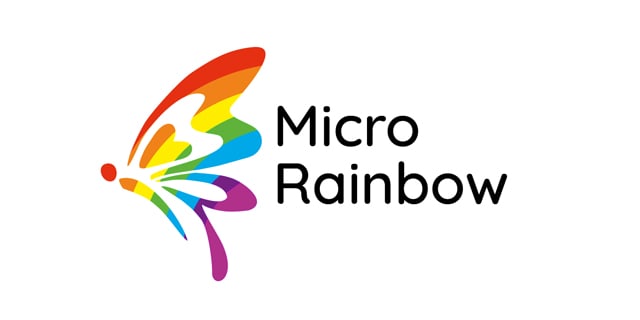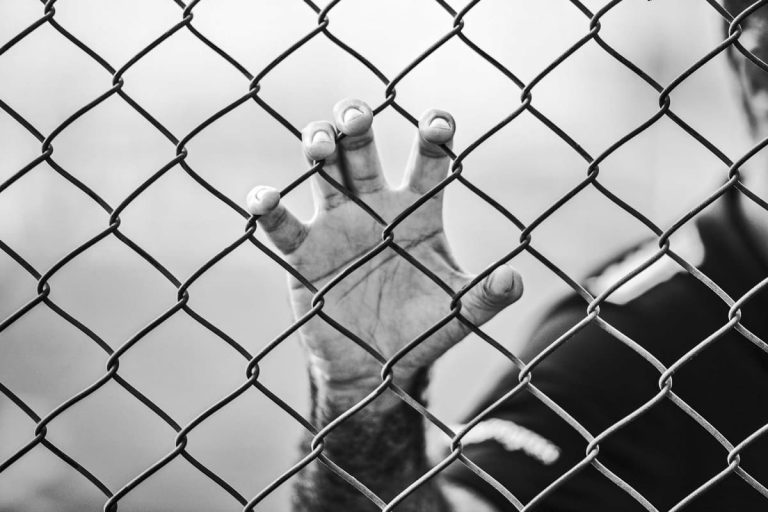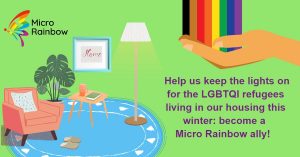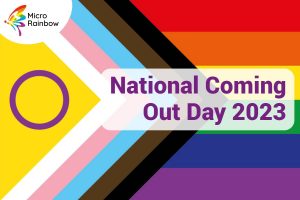What is detention?
Immigration detention is the practice of holding people who are subject to immigration control in custody. This can happen when they are waiting for permission to enter a country, or before they are deported. People in detention may be newly arrived in the UK, or people who have lived here lawfully for years.
Home Office policy dictates that detention must be used sparingly and for the shortest possible time period. However, in practice many thousands are held in detention every year, sometimes for very lengthy periods. The UK is the only country in Europe without a time limit on detention. Most people in detention will be held for less than 2 months, but in 2019 26% were held for more than 28 days.
Every year, Micro Rainbow receives urgent requests of help from LGBTQI migrants who have been detained.
Costs and impact of detention
LGBTQI migrants are particularly vulnerable and can face serious issues in immigration detention. They are likely to experience discrimination and harassment from other detainees who can hold LGBTQIphobic views. Trans people can be at even greater risk of abuse because of their visibility and may be forced to hide their gender identity. Detention can jeopardise LGBTQI people’s chances of winning their asylum claims. How can they satisfy a decision maker as to their sexuality or gender identity from a detention centre where they are not even free and fear to express themselves?
Micro Rainbow’s community-based approach
The recent Rainbow Migration pilot study into LGBTQI experiences of detention underlines the fact that detention is unsafe for LGBTQI people, and the situation is not improving. Based on its experience on the ground in supporting LGBTQI people to get out of detention centres, Micro Rainbow believes that a holistic approach, incorporating housing, social inclusion and moving on support can be a viable alternative to detention.
This approach allows LGBTQI migrants to benefit from a supportive environment and specialised support. It helps to safeguard their mental and physical health and keep them safe from harassment and violence from other detainees.
Chege’s experiences of detention
Chege is a gay man from Kenya, where same-sex sexual activity is criminalised, punishable with 14 years’ imprisonment. He was forced to flee to the UK to escape the violence, harassment, and discrimination he faced in Kenya. He was unable to access accommodation through the Home Office because his asylum case had been refused.
Since 2019, he has been living in Micro Rainbow’s safehouse for people without recourse to public funds (NRPF). Living in the Micro Rainbow safe house gave him the stability he needed to prepare a new asylum claim and to express and explore his sexuality in a safe environment. During this time, Micro Rainbow was able to give him £40 a week subsistence and free accommodation thanks to the generosity of several funders.
Detained for the first time
In December 2021 Chege was detained when reporting to the Home Office. People who do not have permission to stay in the UK are often required to attend appointments at an immigration reporting centre. Chege was required to report at the centre and sign in with the Home Office every two weeks. It was at one of these required appointments that he was detained. He was taken to a detention centre; he had his phone taken away and was unable to tell anyone what had happened.
“It was incredibly traumatising. I couldn’t sleep, I couldn’t eat. I lost a lot of weight. It was a lonely and isolating place”.
While in detention he was told that the Home Office had booked him on a flight back to Kenya. Chege knew he would be in danger, his family don’t know about his sexuality and would not accept him. Most of the traumatising events in his life happened in Kenya before he was able to escape. The thought of being forcibly returned triggered his PTSD and he was prescribed anti-depressants to cope.
While in immigration detention, our outreach officer worked with Chege’s solicitor in submitting the necessary document and bail support letters to secure his release. The judge released him to Micro Rainbow’s safe house at the end of January 2022. After release, he attended Micro Rainbow social inclusion activities, and worked hard to gather the evidence for his asylum application.
Detained a second time
Similarly, to December 2021, in June 2022, Chege was detained a second time signing in with the Home Office. His new asylum claim had been submitted, but a misunderstanding at the Home Office led to his detention. Chege’s second period of detention lasted several months.
Bail requirements
Chege had fulfilled all the requirements of the Home Office – which includes signing in with the Home Office every two weeks – yet he has been detained twice. Signing in with the Home Office was already a source of anxiety for Chege because of the circumstances of his first detention.
Chege was hugely impacted mentally by his second, extended period of detention:
“Once you’re in there you can’t control anything. You’re stressed, you’re in your head. It can make you feel suicidal”.
He began taking antidepressants again to cope with the stress of his situation.
With the help of his lawyer and Micro Rainbow’s outreach officer, he was eventually released on bail to Micro Rainbow’s safe house. He is still coping with the lasting psychological impact of his detention.
Community-based alternatives
Living in Micro Rainbow’s NRPF house, Chege felt cared for:
“Micro Rainbow outreach officers make you feel safe. They offer support and a listening ear”.
This is in stark contrast to the isolation and fear he felt in detention.
Chege has proven time and time again that he is reliable. There is no need to detain him. Detention is expensive: in 2022 the average cost to hold one person in immigration detention was around £107 per day. This is the highest since records began. Micro Rainbow’s housing provides a significantly cheaper and safer option for people with indeterminate immigration status.
How you can help
Micro Rainbow already supports people like Chege who have uncertain immigration status and have no recourse to public funds, but many more need assistance. Help Micro Rainbow create a dedicated fund to:
- reserve some places in its safe housing scheme to provide an address for LGBTQI migrants in detention so that they can obtain bail;
- reduce violence and discrimination towards LGBTQI people in detention centres;
- increase the chances for LGBTQI migrants to win their immigration claims.
Become an ally and commit to making a regular donation to Micro Rainbow to pay for bills, transport and subsistence for people who come out of detention. Your donation will be ring-fenced and will be spent only in relation to Micro Rainbow’s detention work. It costs £50 per day to provide an LGBTQI migrant coming out of detention with free housing and energy bills, subsistence and support.







